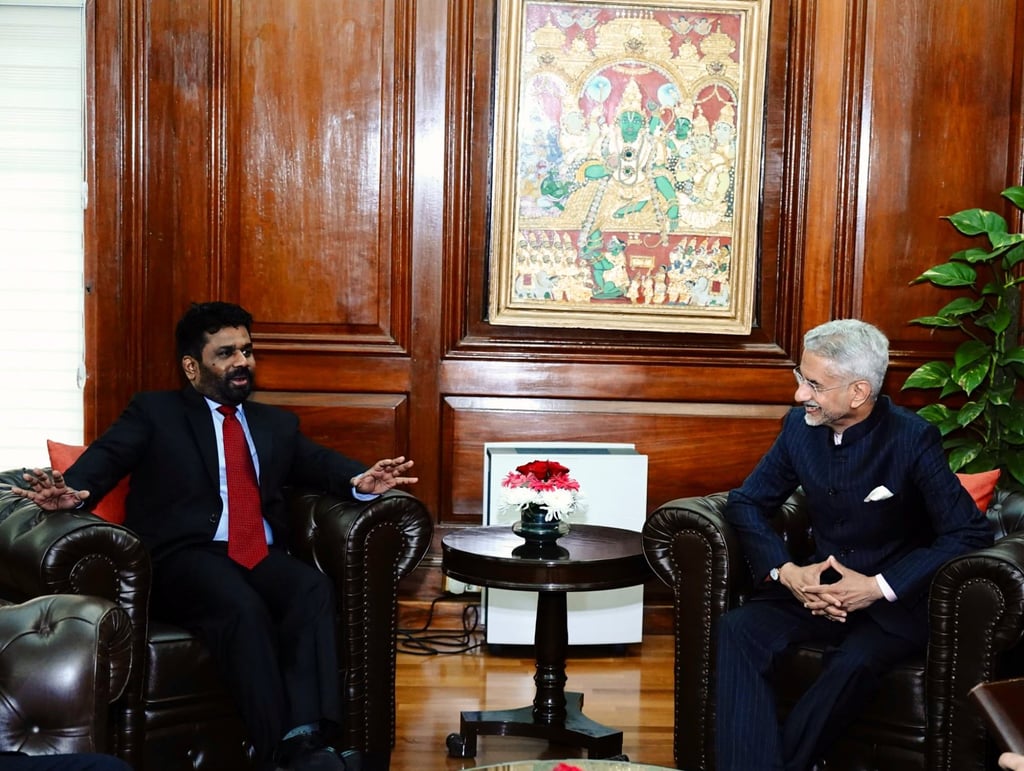Advertisement
In Sri Lanka, India embraces a resurgent old foe to keep China at bay
- Anura Kumara Dissanayake’s Marxist-Leninist JVP has long been anti-India and has more in common with Beijing than New Delhi ideologically
- But Modi’s government still wants to get to know him and his NPP alliance better, as polls show it could win Sri Lanka’s presidency later this year
Reading Time:4 minutes
Why you can trust SCMP
3

India last week welcomed the leader of an ascendant Sri Lankan communist coalition for an official visit, in a sign New Delhi wants to strengthen ties with a political force that’s poised to win control of the island nation’s government – but is more naturally aligned with China.
Advertisement
Anura Kumara Dissanayake is the leader of Janatha Vimukthi Peramuna (JVP), a Marxist-Leninist party whose name means the “People’s Liberation Front” and which has led armed uprisings against Sri Lanka’s government in the past.
During his visit to Delhi from February 5-10, he headed a delegation from National People’s Power (NPP), a political alliance founded by Dissanayaka nine years ago that a December opinion survey indicated was polling at 50 per cent ahead of presidential polls set for September or October.

External Affairs Minister S. Jaishankar, National Security Adviser Ajit Doval, and Foreign Secretary Vinay Mohan were among the senior officials from Narendra Modi’s government who met with the NPP delegation in India.
For an alliance that won just 3.84 per cent of the vote in the 2020 general elections, it marks quite the reversal of political fortunes. But much has changed in those four years. Sri Lanka has been struggling with an economic crisis since declaring bankruptcy in early 2022, with massive protests leading to the ousting of its former president in July that year.
Against this backdrop, analysts view Delhi’s outreach to the JVP-led NPP as an attempt to win influence over a political party with a long-held antipathy towards India.
Old adversaries
“NPP is not the ideal scenario for India’s interests in Sri Lanka because the JVP had a well known anti-Indian policy,” said Professor Nirmal Ranjith Dewasiri, head of the University of Colombo’s history department. “But [Delhi] cannot do anything about it.”

Advertisement